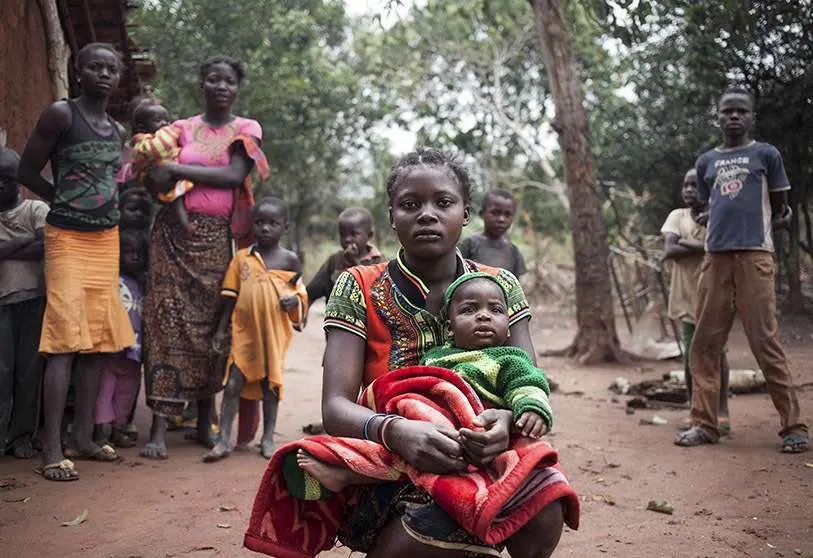Gender in African paradigm

Women and men in the African paradigm are complementary beings, and there is an interrelationship between the two genders: no woman without a man and no man without a woman.
While other countries are gradually recovering many things necessary for the sake of humanity, the African continent has not fully recovered that which was its essence in imperial Africa.
Our Mother Earth must recover its history, integrity and spirituality, taking into account that African society from imperial Africa has been led by women.
History today reveals a very different reality regarding African women: facts such as polygamy or the abolition of the clitoris present women as victims, but this vision is not the true history of Africa.
Imperial Africa was a matriarchal society, and it was not until the arrival of foreigners in the 14th century that the changes we see today began to be noticed.
We emphasize that before the 18th century women and men were equal and the differences of today did not exist, and although the matriarchal system of Africa was not destroyed, it is true that the values of patriarchy were introduced.
Even for the most naive of intellectuals it cannot be ignored that since human history, women have intervened in many areas of life to build a better society, it would be in vain to make the construction of history dependent only on men.
There is a growing number of authors who re-read the past in order to find female characters to acknowledge their value, whether they were doctors, queens, architects, engineers, geometricians, chemists, heroines, princesses, pan-Africanists... But never has a black woman been recognised as a heroine by world history as the women quoted below deserve on their own merit.
Princess Yennenga, founding mother of the Mossi Kingdom (today's Burkina Faso). Yennenga was against the patriarchal system that was beginning to impose itself on the continent through the teachings coming from Europe and the Middle East, but despite her skill in battle and her dexterity, the Mossi Kingdom ended up being led by men.
Peseshet, who grew up and worked in Egypt, was the first known female physician in the world besides being the head of the physicians of ancient Egypt's 4th dynasty.
Queen Taytu Betul, formidable queen and empress of Ethiopia. A shrewd diplomat who proved a key figure in thwarting the plans of European warriors, she founded Addis Ababa, which remains Ethiopia's current capital.
Madame Tinubu, as Efunporoye Osuntinubu Olumosa, a businesswoman and politician, is known. As an entrepreneur, she was a forerunner of natural medicine with medicinal herbs and until her death in 1887, Madame Tinubu fought against the slave trade becoming an essential figure in Nigeria.
Queen Kimpa Vita was the mother of the African revolution. In the 17th century the Kongo Kingdom was immense, encompassing present-day Angola, the Republic of Congo, the Democratic Republic of Congo (DRC) and Gabon. Queen Kimpa Vita was a brave and intelligent queen who knew how to listen and fought for the good of her people, being very loved by them and highly valued for knowing how to forgive traitors. Unfortunately, she had a sad end and in defending her people, she was burned at the stake by a group of Portuguese politicians in 1706.
I ask myself then, why not make visible and praise those queens who have guided their people, those unusual activists, those anonymous women who supported the struggles of humanity with their deeds?
Absent from the collective memory and often hidden by the custodians of the current tradition, they seem to have left no trace in posterity and if we do nothing to make visible the exceptional characters who have illustrated outstanding episodes of our past, young generations will never have any other references.
I would not like to say goodbye without mentioning the good news that we are receiving from the African continent since, in the last decade, there has been an increase in the participation of women entrepreneurs, in political decision-making processes, with Namibia, South Africa and Senegal and Rwanda as good examples, this being one of the first ten countries in the world with the highest percentage of women parliamentarians.
At present, the rate of female entrepreneurship among African women is 24% according to data from the magazine Le Point, 7th July 2019, and Le monde: Afrique, 29th July 2019, an impressive figure and much higher than that of European, Asian and American women, without doubt a truly encouraging figure.
Divaika Kiemba Dina
Representative of Ghota Noir d'Europe in Spain/Portugal and President of the Centre Euro Africa. Twitter: @divaika
